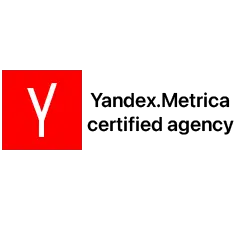SEO (Search Engine Optimization) is the process of improving the website’s ranks in search results. First page rankings are necessary to achieve maximum visibility and online business. There are some webmaster guidelines that one should follow while doing SEO. You can get stable and tangible results by considering legit SEO techniques.
However, there are always two ways of doing something, one is long but provides satisfying results, and another one is short, but final products are devastating. In the case of SEO, the second way is the black hat SEO, which employs deceptive techniques to manipulate search results. These outlawed techniques seem easy and reliable, but search engines have developed enough intelligence to encounter mischief and penalize them.
So, you shouldn’t count on black hat SEO tactics to avoid any search engine penalty and closure of your online business.
Let’s discuss these Black hat optimization tactics so that you don’t consider these even unknowingly.
Paid Links
Quality & relevant backlinks are one of the significant ranking factors, and Google measures your link popularity while ranking websites. Google doesn’t treat all backlinks the same; high domain authority backlinks have more weightage in rankings than low DA inbound links. Backlinks are votes for your quality content and services. Search engines only pass the authority of backlink if your link is relevant and making sense in that place.
Sometimes, people buy links or use other illegitimate link building tactics to improve the backlink profile of the website. Mostly, Google identifies paid links by measuring the relevancy and authority of the website. Hence, if you are paying for links from sites that are irrelevant to your niche, then search engines penalize your website.
So, don’t go for paid links, and provide quality content and services, so webmasters naturally link you to serve their users best.
Hidden Links
In earlier days, hidden links were one of the most common link building techniques used by various online businesses. Now, Google has updated its algorithms to encounter this kind of deceptive technique and punish them accordingly. Hidden links are links that are not visible to the user and only for crawlers. Google Webmaster’s Guidelines has mentioned some prohibited hidden link techniques:
- Text behind an image
- Zero font size text
- Off-screen links
- White text on white background
- Hyperlinking comma, full stop, or a single character
If you want to check your website for hidden links, then there are many online tools available that can help you explore all links on the website. It is recommended to prevent your site from hidden links practice. Hence, remove them ASAP because you can receive a penalty and permanent de-indexing for it.
Private Blog Networks (PBNs)
A private blog network is a group of many blog websites designed to make backlinks. It is used to enhance the authority of each other by link farm, or pass authority to a central website. PBN comes under link farm or link schemes, which are banned by search engines because it fools backlink ranking scale and low-quality websites rank higher in SERP.
Google prioritizes user experience, and PBN troubles users to get the right information. Google has added some amendments to algorithms and can easily find link schemes.
Generally, PBN’s are identified by the same IP address, same content, shared servers, and the same owners. Google bots can conveniently identify these patterns and penalize your website for this mischief.
Cloaking and Sneaky Redirects
Cloaking is a concept in which one serves different content to users and crawlers, which is unethical and punishable. Google is smart enough to discern this outlawed black hat SEO technique.
Further moving, sneaky redirects are also a black hat SEO technique, and it is employed to redirect traffic to a specific page. A page ranks for its content, but when a user clicks on it, he will be redirected to an irrelevant webpage, which irritates users and search engines consequently.
As Google doesn’t like irrelevant redirects, crawlers understand the context of both pages. If these redirections have no relevance with each other, then you are in big trouble and eligible for permanent de-indexing. Redirects are for curing broken links and moved pages, and the uses of redirects for any manipulative tactics are penalized. So, don’t use sneaky redirects to divert traffic to your website from other websites.
Keyword Stuffing
Keywords are phrases users use to find your websites like yours, and search engines use keywords to provide the best relevant results to users. Unnecessary use of keywords in content is stuffing, which is a violation of the webmaster’s guidelines.
There is no specific limit for keyword density, but keep in mind that your keyword is making sense in that sentence and not inserted for rankings only. Google’s latest BERT update can easily understand the context of your content and can easily detect keyword stuffing. You should create your content for users instead of crawlers.
As Google can understand your content, you don’t have to stuff your content with keywords, use synonyms, and variations of keyword in an appropriate limit to pass the value to users.
These are some black hat SEO techniques that can harm your current ranks and impose a lifetime ban. So, you are going to lose your existing business in the hope of quick growth by the above deceptive tactics. The only golden rule for digital success is, follow legit search engine optimization techniques regularly. It is a gradual process, but SEO will give you tangible, long-lasting results. Egnoto is the top digital marketing company that can help you get first page rankings with our best practices & result-driven digital marketing services.
Always remember – Best serve your users, and Google rewards you. Ignore your users, and get penalized.










